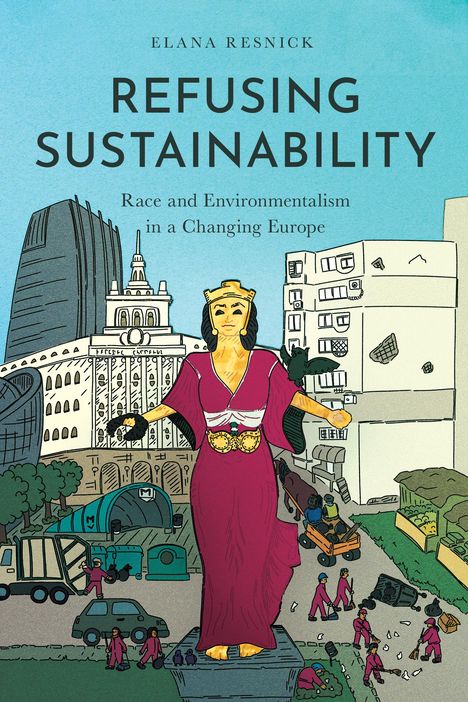Elana Resnick: Refusing Sustainability, Gebunden
Refusing Sustainability
- Race and Environmentalism in a Changing Europe
(soweit verfügbar beim Lieferanten)
- Verlag:
- Stanford University Press, 07/2025
- Einband:
- Gebunden
- Sprache:
- Englisch
- ISBN-13:
- 9781503635425
- Artikelnummer:
- 12075450
- Umfang:
- 296 Seiten
- Gewicht:
- 522 g
- Maße:
- 231 x 152 mm
- Stärke:
- 23 mm
- Erscheinungstermin:
- 29.7.2025
- Hinweis
-
Achtung: Artikel ist nicht in deutscher Sprache!
Weitere Ausgaben von Refusing Sustainability |
Preis |
|---|---|
| Buch, Kartoniert / Broschiert, Englisch | EUR 37,90* |
Klappentext
"Sustainability has become a touchstone for development worldwide, promising an antidote to environmental degradation and capitalism's excess: waste. Refusing Sustainability presents a fundamentally different account of sustainability and waste itself by uncovering the intersections of international environmental reforms and racialized labor. In Bulgaria, Roma comprise the bulk of the country's waste workers, while anti-Roma racism casts them as socially disposable. Without their labor, however, the country cannot meet the sustainability targets required by the European Union. Drawing on fieldwork that spans twenty years, including 11 months working alongside Romani women street sweepers, and years embedded in waste organizations, political campaigns, Roma NGOs, and activist groups, Elana Resnick analyzes the power hierarchies at play in both waste management and European expansion projects. Simultaneously, she examines how communities racialized as discardable push back against a system that relies on and excludes them. Instead of focusing on only environmental harms or toxic distributions, Refusing Sustainability approaches Romani life-worlds as spaces of creative production. Resnick tells the stories of ordinary people who reject the status quo--the conditions of what she calls racial sustainability. Through their experiences, she also tells several larger stories: of postsocialist racial capitalism, environmental progressivism, Europeanization, the failure of democratic politics, neighborhood mutual aid, and the power of women's friendships"--

